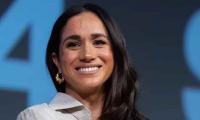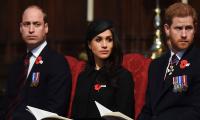People’s issues remain neglected as politics hogs media coverage: PPF report
KarachiPolitics hogs the most space and airtime in print and electronic media, respectively, while human rights and related issues are usually on the sidelines, according to the findings of a survey released by the Pakistan Press Foundation (PPF) on Tuesday. The report, titled “Ethical Dimensions of Media Content in Pakistan”
By our correspondents
July 29, 2015
Karachi
Politics hogs the most space and airtime in print and electronic media, respectively, while human rights and related issues are usually on the sidelines, according to the findings of a survey released by the Pakistan Press Foundation (PPF) on Tuesday.
The report, titled “Ethical Dimensions of Media Content in Pakistan” was launched with the collaboration of Open Society Foundations.
The researchers monitored news stories appearing in both print and electronic and categorised them into different themes out of which about 30 were related to politics, and 12 from them were chosen for analysis.
According to the report, in five newspapers during a period of 12 weeks selected for media analysis, 3,040 news items relating to politics appeared on television and in newspapers, 1,496 were on state institutions, 827 were on foreign policy, 665 were on terrorism, 601 were on violence, 406 on non-state institutions, 253 on corruption, 193 on crime, 158 on social justice, 151 on human rights and 149 news stories were on religion. The newspapers were Jang, Express, The News, Express Tribune and Business Recorder.
The survey called for directing the attention of the media on issues directly related to public interest, such as health, education, gender and environment.
Speaking at the launch ceremony, PPF’s secretary-general Owais Aslam Ali said news channels covered politics extensively while vital issues pertaining to human rights and social justice were deprived of due space and airtime.
He said while grading the news components on an ethical scale, six key components were identified. They were: accuracy, fairness, impartiality, balance, privacy and pluralism.
He said commercialisation of media was affecting news coverage and also needed to be checked. The report is also available online to act as a guidebook for media organisations and journalists, he added.
Asad Khalid Baig of Media Matters for Democracy said the report was compiled after monitoring the aired and published content of three media houses — Geo/Jang, Express and Aaj/Business Recorder groups. He explained that the content aired on television was monitored by Mishal while newspapers were monitored by the PPF.
Speaking on the occasion, senior journalist Mazhar Abbas said the code of ethics still needed to be internalised by the media fraternity. He said often times it were the owners of media houses who killed a story which was against their set interests.
Due to this, he said, the institution of editor had become weak and primetime news is now replaced by advertisements in the electronic media.
Another veteran journalist, Afia Salam, also seconded his views.
Faisal Aziz Khan, who is associated with Bol Television, also said ethical reporting had suffered due to commercialisation of media. News, he said, was now judged by the amount of revenue it was able to generate.
Politics hogs the most space and airtime in print and electronic media, respectively, while human rights and related issues are usually on the sidelines, according to the findings of a survey released by the Pakistan Press Foundation (PPF) on Tuesday.
The report, titled “Ethical Dimensions of Media Content in Pakistan” was launched with the collaboration of Open Society Foundations.
The researchers monitored news stories appearing in both print and electronic and categorised them into different themes out of which about 30 were related to politics, and 12 from them were chosen for analysis.
According to the report, in five newspapers during a period of 12 weeks selected for media analysis, 3,040 news items relating to politics appeared on television and in newspapers, 1,496 were on state institutions, 827 were on foreign policy, 665 were on terrorism, 601 were on violence, 406 on non-state institutions, 253 on corruption, 193 on crime, 158 on social justice, 151 on human rights and 149 news stories were on religion. The newspapers were Jang, Express, The News, Express Tribune and Business Recorder.
The survey called for directing the attention of the media on issues directly related to public interest, such as health, education, gender and environment.
Speaking at the launch ceremony, PPF’s secretary-general Owais Aslam Ali said news channels covered politics extensively while vital issues pertaining to human rights and social justice were deprived of due space and airtime.
He said while grading the news components on an ethical scale, six key components were identified. They were: accuracy, fairness, impartiality, balance, privacy and pluralism.
He said commercialisation of media was affecting news coverage and also needed to be checked. The report is also available online to act as a guidebook for media organisations and journalists, he added.
Asad Khalid Baig of Media Matters for Democracy said the report was compiled after monitoring the aired and published content of three media houses — Geo/Jang, Express and Aaj/Business Recorder groups. He explained that the content aired on television was monitored by Mishal while newspapers were monitored by the PPF.
Speaking on the occasion, senior journalist Mazhar Abbas said the code of ethics still needed to be internalised by the media fraternity. He said often times it were the owners of media houses who killed a story which was against their set interests.
Due to this, he said, the institution of editor had become weak and primetime news is now replaced by advertisements in the electronic media.
Another veteran journalist, Afia Salam, also seconded his views.
Faisal Aziz Khan, who is associated with Bol Television, also said ethical reporting had suffered due to commercialisation of media. News, he said, was now judged by the amount of revenue it was able to generate.
-
 Meghan Markle's As Ever Facing Branding Problems?
Meghan Markle's As Ever Facing Branding Problems? -
 Kate Middleton Is More Relaxed In 'Wellington Boots Than Diamond Tiara'
Kate Middleton Is More Relaxed In 'Wellington Boots Than Diamond Tiara' -
 Gaten Matarazzo Addresses Important Fans Query About 'Stranger Things'
Gaten Matarazzo Addresses Important Fans Query About 'Stranger Things' -
 Prince William's Latest Move Reveals Rift Is Strong With Prince Harry
Prince William's Latest Move Reveals Rift Is Strong With Prince Harry -
 Princess Eugenie Becomes Second Royal After Meghan To Feature In Viral Trend
Princess Eugenie Becomes Second Royal After Meghan To Feature In Viral Trend -
 Carol Burnett Sings Praises Of Late Jimmy Stewart: 'He Had THIS'
Carol Burnett Sings Praises Of Late Jimmy Stewart: 'He Had THIS' -
 Kate Middleton Dashes Through Rain At Windsor Castle
Kate Middleton Dashes Through Rain At Windsor Castle -
 Dave Filoni, Who Oversaw Pedro Pascal's 'The Mandalorian' Named President Of 'Star Wars' Studio Lucasfilm
Dave Filoni, Who Oversaw Pedro Pascal's 'The Mandalorian' Named President Of 'Star Wars' Studio Lucasfilm -
 Is Sean Penn Dating A Guy?
Is Sean Penn Dating A Guy? -
 Sebastian Stan's Godmother Gives Him New Title
Sebastian Stan's Godmother Gives Him New Title -
 Alison Arngrim Reflects On 'Little House On The Prairie' Audition For THIS Reason
Alison Arngrim Reflects On 'Little House On The Prairie' Audition For THIS Reason -
 Spencer Pratt Reflects On Rare Bond With Meryl Streep's Daughter
Spencer Pratt Reflects On Rare Bond With Meryl Streep's Daughter -
 'Stranger Things' Star Gaten Matarazzo Recalls Uncomfortable Situation
'Stranger Things' Star Gaten Matarazzo Recalls Uncomfortable Situation -
 Gaten Matarazzo On Unbreakable Bonds Of 'Stranger Things'
Gaten Matarazzo On Unbreakable Bonds Of 'Stranger Things' -
 Beyonce, Jay-Z's Daughter Blue Ivy Carter's Massive Fortune Taking Shape At 14?
Beyonce, Jay-Z's Daughter Blue Ivy Carter's Massive Fortune Taking Shape At 14? -
 Meghan Markle Fulfills Fan Wish As She Joins Viral 2106 Trend
Meghan Markle Fulfills Fan Wish As She Joins Viral 2106 Trend



